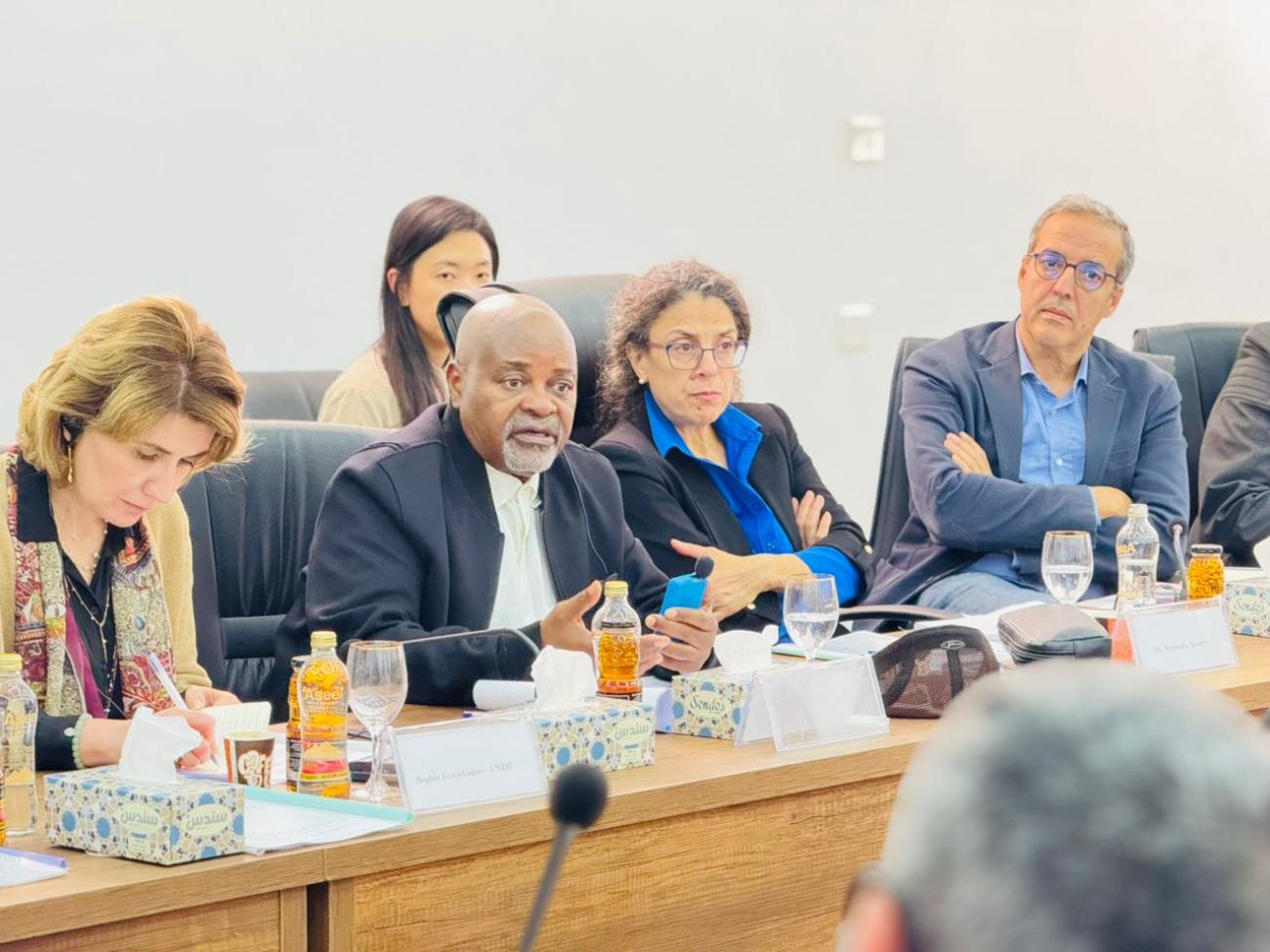A high-level United Nations delegation visited Kufra today to assess the ongoing humanitarian response for Sudanese refugees. Led by UNSMIL Officer-in-Charge Stephanie Koury and Deputy Special Representative of the Secretary-General, Resident and Humanitarian Coordinator Aeneas Chuma, the delegation included representatives from IOM, UNDP, UNFPA, UNHCR, UNICEF, WFP, and WHO.
The UN delegation engaged with local authorities, partners, refugees, and host communities to discuss the implementation of the Sudanese Refugee Response Plan for Libya. This visit aimed to gain firsthand insights into the challenges and successes of the ongoing humanitarian efforts and to identify areas for improvement in providing lifesaving assistance to the growing number of Sudanese refugees in the region and supporting the resilience of host communities, in partnership with Libyan authorities.
The delegation met with refugees and host communities, visited child-friendly and women’s safe spaces offering education and psychosocial support, reviewed a UN-renovated football stadium recognized for fostering unity among youth, and surveyed a distribution and registration center.
Under the 2024 Sudanese Refugee Response Plan for Libya, led by UNHCR, the UN and its partners targeted 194,000 Sudanese and host community members with humanitarian assistance, including Kufra, the nearest municipality to the border with Sudan. Key achievements included providing healthcare services to 155,000 people, providing shelter and basic supplies to 50,000 people, providing protection services for over 73,000 people, and critical food assistance to 44,600 people. Additionally, educational programs and psychosocial support were implemented to address the needs of vulnerable populations, particularly women and children.
Looking ahead, the 2025 Sudanese Response Plan for Libya aims to support a target population of 446,000 Sudanese refugees and host community members in Libya. The plan aims to mobilize USD 106.6 million covering health and nutrition, education, food security, WASH, and protection sectors. This comprehensive plan is designed to address the immediate needs of refugees while supporting host communities and Libyan efforts.
The UN in Libya applauded the solidarity and hospitality extended to refugees nationwide by the Libyan and Sudanese communities, recognizing that public services, especially in the health and education sector, are seriously overstretched. The UN commends the existing support from national and local authorities. However, there is a dire need for critical support for local infrastructure to ensure continued services for all people in these areas.
The UN in Libya urges our partners and the international community to support the 2025 Sudanese Response Plan for Libya. The situation in Sudan remains dangerous and volatile, with the humanitarian situation continuing to worsen and forcing more people to seek safety, with 500 on average arriving in Libya daily. Partners’ immediate contributions are vital to continuing to provide lifesaving assistance and support to host communities and Sudanese refugees in Libya. Together, we can significantly impact and help build a better future for those affected by this crisis.



